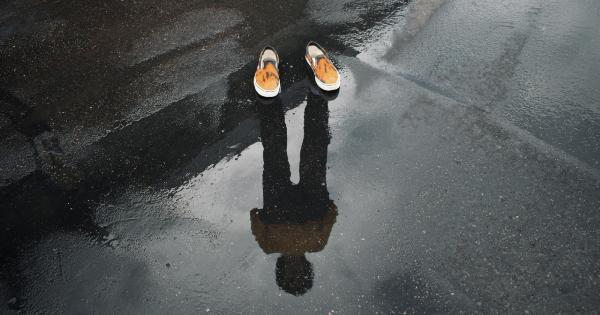When we think of summer, we often associate it with warm weather, beach getaways, and outdoor activities. However, summer is also the time when many people fall victim to the dreaded summer cold.
While a common cold is usually associated with the colder months, it’s important to realize that the viruses responsible for colds can strike at any time, including the summer season. In this article, we will explore why people experience summer colds, the symptoms to watch out for, and how to prevent and treat them.
What Causes a Summer Cold?
Colds are most commonly caused by viruses, and there are hundreds of different viruses that can lead to a cold. The most common culprit is the rhinovirus, but other viruses like coronavirus and enterovirus can also be responsible for a cold.
These viruses are highly contagious and can spread through droplets in the air when an infected person sneezes, coughs, or talks. They can also be transmitted by touching surfaces contaminated with the virus and then touching the nose, mouth, or eyes.
In the summer, people tend to spend more time outdoors and engage in activities that increase the risk of exposure to viruses.
For example, crowded events, travel, and sharing close quarters with others on vacation are all situations that facilitate the transmission of viruses. Additionally, fluctuations in temperature, warm and humid environments, and exposure to air conditioning can weaken the body’s natural defense mechanisms, making it easier for viruses to take hold and cause infection.
Symptoms of a Summer Cold
The symptoms of a summer cold are similar to those experienced during a cold in any other season. It typically starts with a scratchy or sore throat, followed by nasal congestion and a runny nose. Sneezing, coughing, and a mild fever may also be present.
These symptoms can be bothersome and may last for several days to a week, depending on the individual’s immune system and the virus causing the cold.
Preventing a Summer Cold
Although it may be challenging to completely avoid catching a summer cold, there are several preventive measures you can take to minimize your risk:.
1. Wash Your Hands Frequently
Proper hand hygiene is crucial in preventing the spread of viruses. Wash your hands with soap and water for at least 20 seconds, especially after being in public spaces or touching surfaces that may be contaminated.
2. Avoid Close Contact with Sick Individuals
Try to maintain a safe distance from people who are visibly sick, as they can easily transmit the virus through respiratory droplets.
3. Boost Your Immune System
A strong immune system can help fend off viruses. Ensure you eat a balanced diet, exercise regularly, get adequate sleep, and manage stress levels.
4. Stay Hydrated
Drinking enough fluids helps keep your respiratory system moist and may help reduce the severity of cold symptoms.
5. Clean and Disinfect Surfaces
Regularly clean and disinfect frequently touched surfaces, such as doorknobs, light switches, and electronic devices, to minimize the presence of viruses.
Treating a Summer Cold
If you do end up catching a summer cold, the following remedies can help alleviate symptoms:.
1. Rest and Stay Hydrated
Ensure you get plenty of rest and drink fluids to support your immune system and keep your body hydrated.
2. Use Over-the-Counter Medications
Over-the-counter cold medications can provide relief from nasal congestion, sore throat, and cough. However, always read the label and follow the recommended dosage instructions.
3. Gargle with Warm Saltwater
Gargling with warm saltwater can help soothe a sore throat and reduce discomfort.
4. Use Nasal Saline Sprays
Nasal saline sprays can help relieve nasal congestion and moisturize the nasal passages.
When to Seek Medical Attention
In most cases, a summer cold will resolve on its own with adequate rest and self-care. However, it is essential to seek medical attention if the symptoms worsen or persist for an extended period.
Additionally, individuals with pre-existing health conditions or weakened immune systems should consult a healthcare professional for guidance.
Conclusion
A summer cold may not be your typical seasonal ailment, but it is undoubtedly an unwelcome visitor during the warmer months.
By understanding the causes, symptoms, preventive measures, and treatment options, you can better equip yourself to combat and minimize the impact of summer colds. Remember to practice good hygiene, take care of your immune system, and seek medical advice when needed. Stay healthy and enjoy your summer!.

























